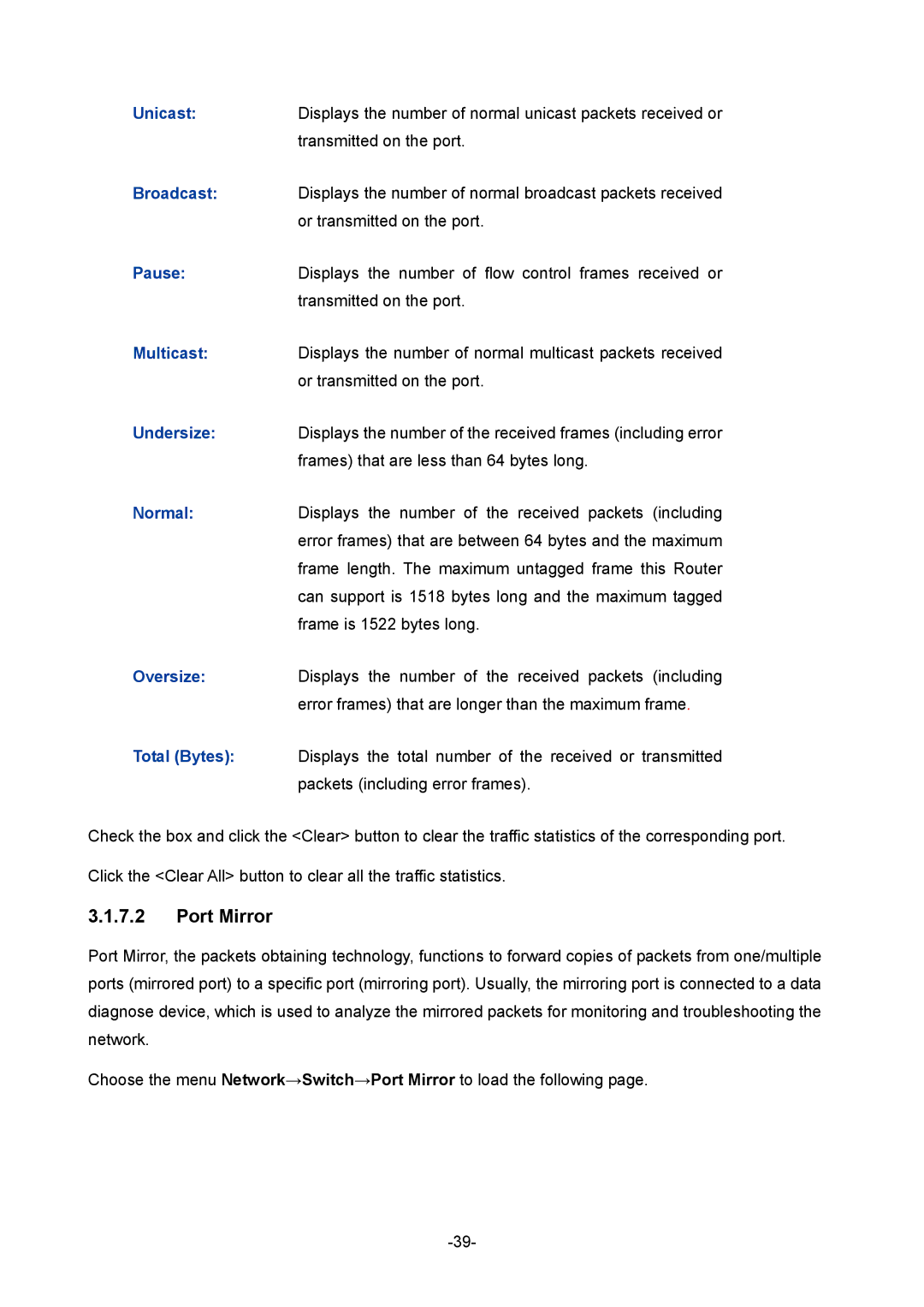Unicast:Displays the number of normal unicast packets received or transmitted on the port.
Broadcast: Displays the number of normal broadcast packets received or transmitted on the port.
Pause:Displays the number of flow control frames received or transmitted on the port.
Multicast: Displays the number of normal multicast packets received or transmitted on the port.
Undersize: Displays the number of the received frames (including error frames) that are less than 64 bytes long.
Normal:Displays the number of the received packets (including error frames) that are between 64 bytes and the maximum frame length. The maximum untagged frame this Router can support is 1518 bytes long and the maximum tagged frame is 1522 bytes long.
Oversize: Displays the number of the received packets (including error frames) that are longer than the maximum frame.
Total (Bytes): Displays the total number of the received or transmitted packets (including error frames).
Check the box and click the <Clear> button to clear the traffic statistics of the corresponding port.
Click the <Clear All> button to clear all the traffic statistics.
3.1.7.2Port Mirror
Port Mirror, the packets obtaining technology, functions to forward copies of packets from one/multiple ports (mirrored port) to a specific port (mirroring port). Usually, the mirroring port is connected to a data diagnose device, which is used to analyze the mirrored packets for monitoring and troubleshooting the network.
Choose the menu Network→Switch→Port Mirror to load the following page.
